What is Hibiscus Tea?
Hibiscus tea is a refreshing beverage made from the dried parts of the hibiscus plant. Specifically, it is the calyces of the Hibiscus sabdariffa flower that are used to make the tea. The drink is known for its deep red color, tart flavor, and vitamin C content. Hibiscus tea can be enjoyed hot or cold, and it is often sweetened with sugar or honey to balance its natural sourness.
People around the world savor hibiscus tea for its taste and benefits. It’s caffeine-free, making it a suitable choice for those avoiding stimulants. Moreover, the use of hibiscus blooms in tea has a rich history, tracing back to ancient Egypt and beyond. Nowadays, hibiscus flower tea is widely available and embraced for its potential health advantages. As you sip on this ruby-red infusion, you’re partaking in a global tradition that spans centuries. To fully grasp its impact, let’s explore the historical uses and health implications this herbal tea offers.
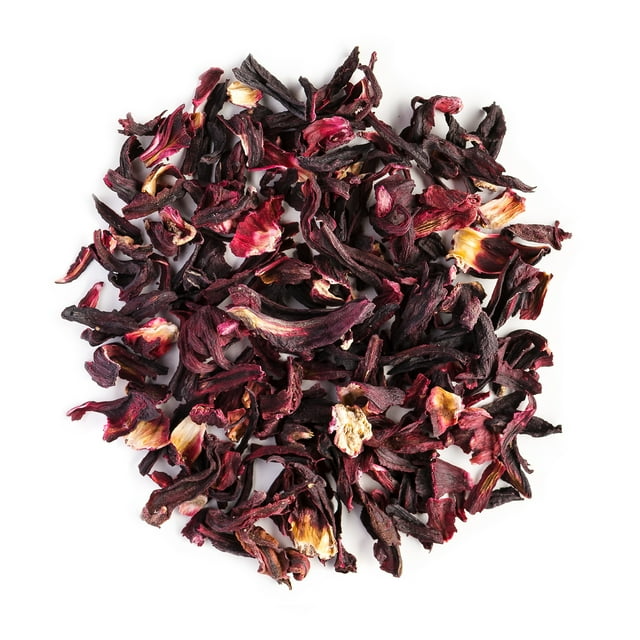
Historical Uses of Hibiscus Tea
Hibiscus flower tea is not just a modern-day beverage. Its roots extend far back into history. Cultures across the world have used flower tea for centuries. In ancient Egypt, for example, people drank it to cool off in the desert heat. They valued hibiscus for its ability to improve heart health and soothe heated bodies.
In Africa, hibiscus flower tea, often called ‘sour tea,’ was a traditional remedy. People used it to address concerns like high blood pressure, liver disease, and fever. The tradition of drinking flower tea spread throughout the continent. It became a staple in many African countries.
Moving to the Caribbean, hibiscus tea took on the name ‘sorrel.’ There, it became famous for festive occasions, especially during Christmas. They brew it with ginger and sweeten it, giving it a unique, celebratory flavor.
In Iran, hibiscus flower tea is known as ‘sour tea’ as well, and it is commonly sipped for its presumed benefits. These include respiratory health, digestion, and a calm mind.
The historical reach of hibiscus flower tea tells us about its versatility and appeal. With such a rich past, it’s clear that the health benefits of flower tea have long been recognized across the globe. Each region has tailored the use of hibiscus to its own cultural and medicinal practices. This has only broadened the intrigue and lore surrounding this powerful plant.
Nutritional Profile of Hibiscus Tea
Understanding the nutritional profile of hibiscus flower tea is essential for recognizing its numerous health benefits. This herbal tea is not just celebrated for its tangy taste and vibrant color; its rich nutritional content plays a significant role in promoting overall well-being.
Vitamin C Content
Hibiscus tea is particularly abundant in vitamin C. This essential nutrient is widely recognized for its ability to boost the immune system. A strong immune system helps the body fend off infections and illnesses. Regular consumption of hibiscus flower tea can aid in meeting one’s daily vitamin C requirements.
Mineral Composition
In addition to vitamin C, flower tea contains important minerals such as calcium, magnesium, and iron. Calcium helps to maintain strong bones and teeth. Magnesium supports muscle function and energy production. Iron is crucial for oxygen transport in the bloodstream. These minerals work together to support various bodily functions, contributing to overall health.
Antioxidants
Hibiscus tea is also rich in bioflavonoids. These powerful antioxidants are vital for combating free radicals in the body. Free radicals are harmful compounds that can damage cells and lead to chronic diseases.
Additionally, the presence of anthocyanins in hibiscus provides its distinctive deep red color. These compounds are linked to various health benefits, including anti-inflammatory effects.
Low-Calorie Option
The low-calorie nature of hibiscus tea makes it a suitable choice for those looking to manage their weight. When consumed unsweetened, it has virtually no sugar content. This characteristic is particularly beneficial for individuals monitoring their blood sugar levels.
Best Practices for Consumption
To fully harness the nutritional benefits of flower tea, it is advisable to drink it without added sweeteners. Avoiding sugar allows you to enjoy the natural flavors and health properties of the tea.
Growing Health Awareness
As more people become health-conscious, the understanding of the nutritional profiles of beverages like flower tea is gaining importance in dietary choices. This delectable herbal tea stands out not only for its delightful taste but also for its remarkable health benefits.
In conclusion, hibiscus tea provides a wealth of nutrients and antioxidants, making it an excellent addition to a balanced diet.
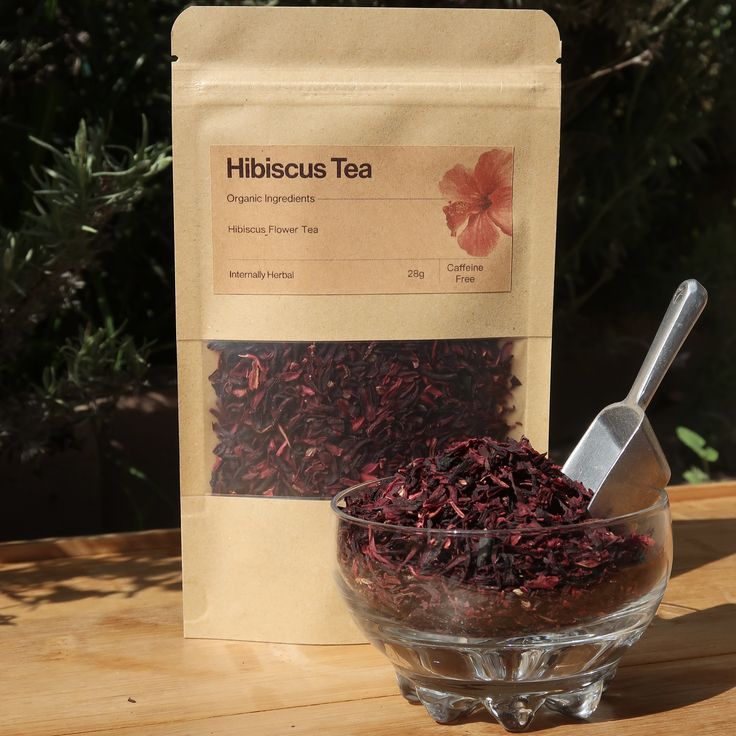
Key Health Benefits of Hibiscus Flower Tea
Hibiscus tea is more than just a soothing beverage; it’s a powerhouse of health benefits. Here’s a compact look at the key advantages of incorporating this herbal drink into your diet:
Rich in Antioxidants
Antioxidants are crucial for combating oxidative stress caused by free radicals. Hibiscus tea is loaded with these protective compounds, particularly anthocyanins, which can help to maintain healthy cells.
Supports Heart Health
Studies show that flower tea can help lower blood pressure, reducing the risk of heart disease. Its bioactive compounds have a positive effect on blood lipid levels as well.
Aids Digestion
Hibiscus flower tea has mild diuretic properties. These properties can promote better digestion. Drinking hibiscus flower tea may help regulate bowel movements effectively. It can also be beneficial in reducing bloating and discomfort.
Weight Management
Hibiscus tea is a calorie-free beverage. This makes it an excellent addition to any weight management plan. Drinking hibiscus flower tea can help curb cravings effectively. It also promotes a feeling of fullness, aiding in portion control.
Boosts Immunity
Hibiscus tea is rich in vitamin C. This essential nutrient plays a vital role in strengthening the immune system. A stronger immune system helps protect the body. It can reduce the likelihood of common illnesses, including colds and the flu. Regular consumption of flower tea may offer added immune support.
Potential Liver Benefits
Research suggests that hibiscus tea may support liver health. It may help increase detoxifying enzymes in the body. Additionally, flower tea could play a role in reducing liver damage effectively. Further studies are needed to understand its full potential.
Remember, the benefits of hibiscus tea are best enjoyed without added sugar. Drinking it unsweetened allows you to experience its full natural flavors. Incorporate flower tea into your daily diet. Revel in its tangy goodness while nurturing your overall well-being and health.
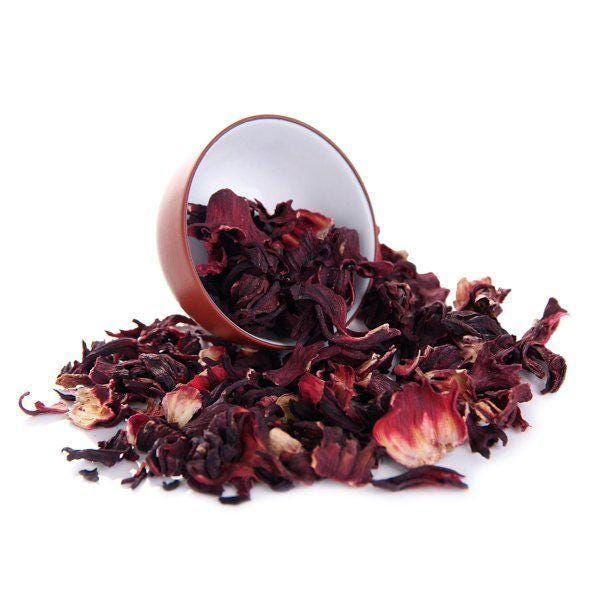
How to Brew the Perfect Cup of Hibiscus Flower Tea
Creating a perfect cup of hibiscus tea is an art. Here’s a simple guide.
Firstly, gather the essentials you’ll need: dried hibiscus flowers, a pot or kettle, and boiling water. A sweetener like honey or sugar is optional, and you could also add a slice of lemon or ginger for extra flavor.
Here are the steps to make your tea:
- Boil water in a kettle or pot. For one cup, use about 250ml of water.
- Add about 1-2 teaspoons of dried hibiscus flowers into a teapot or a cup.
- Pour the boiling water over the hibiscus flowers.
- Steep the tea for 5 minutes. If you prefer a stronger taste, let it steep for up to 10 minutes.
- Strain the hibiscus flowers and pour the tea into a cup.
If you enjoy sweetness in your tea, add honey or sugar to taste. For a twist, a splash of lemon juice can enhance the flavor and add an extra zing.
Cold brewing is another way to enjoy hibiscus tea. Just combine cold water and hibiscus flowers in a pitcher. Let it sit for 6-8 hours or overnight in the refrigerator. The result is a refreshing drink perfect for hot days.
Enjoy your perfect cup of hibiscus tea and savor the health benefits it brings.
Potential Side Effects and Considerations
While hibiscus tea offers many health benefits, it’s important to consider potential side effects. Here are some considerations to bear in mind before adding flower tea to your routine:
- Blood Pressure Impact: Hibiscus tea can lower blood pressure. This is generally positive, but for those on medication or with naturally low blood pressure, it can be a risk. Monitor your blood pressure if you drink flower tea regularly.
- Pregnancy and Breastfeeding: There is limited research on flower tea’s safety during pregnancy and breastfeeding. Pregnant women should consult their doctor before consuming this tea.
- Interaction with Medications: Hibiscus tea might interact with certain drugs. This includes acetaminophen and some diabetes and blood pressure medicines. Always check with a healthcare provider if you’re on medication.
- Allergic Reactions: Some might have allergies to hibiscus. If you experience itching or swelling after drinking the tea, stop use immediately.
- Diuretic Effect: As a natural diuretic, flower tea can increase urine production. This can affect hydration and electrolyte balance. Stay hydrated by drinking plenty of water.
To enjoy hibiscus tea safely, start with small amounts. Watch for any adverse signs. Most people can enjoy the tea without issues, but personal health and reactions vary. Be mindful of your body’s responses.
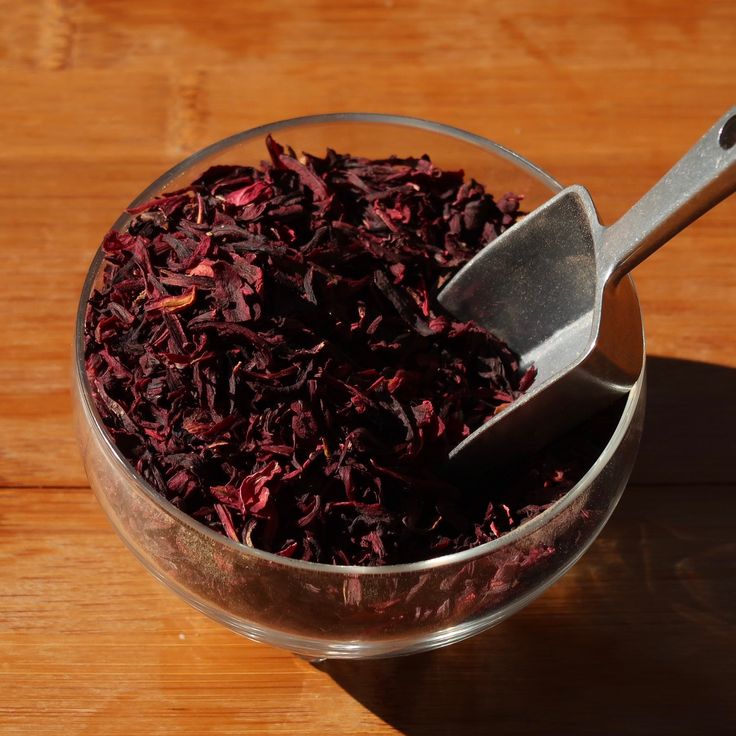
Comparing Flower Tea with Other Herbal Flower Teas
When exploring the world of herbal teas, hibiscus tea stands out for its unique qualities. It’s important to compare its attributes with those of other popular infusions. Doing so can help you understand where flower tea fits into the wider landscape of herbal beverages.
Flavor Profile
Hibiscus tea is known for its tart, cranberry-like flavor. This sets it apart from the gentle, soothing tastes found in chamomile or the minty freshness of peppermint tea. For those who prefer a zesty kick, flower tea is a viable option.
Color and Presentation
The deep red hue of flower tea is another distinctive feature. While green tea offers a subtle green and black tea a dark amber, flower tea provides a vibrant pop of color that is both visually appealing and an indication of its rich content of anthocyanins.
Health Benefits
All herbal teas have health promoting properties, but each has its own set of benefits. Unlike green tea, which is celebrated for its catechins, flower tea shines due to its high vitamin C content and potential to lower blood pressure. It’s a caffeine-free alternative to traditional teas like black or green tea.
Usage in Traditional Medicine
Many herbal teas have roots in traditional medicine; however, their uses vary. Ginger tea, for example, is celebrated for aiding digestion and reducing nausea, while flower tea has a history of use for heart health and temperature regulation, as seen in ancient Egyptian culture.
Preparation Techniques
Most herbal teas follow a similar preparation process, with variations in steeping time to adjust flavor strength. Hibiscus tea, additionally, can be enjoyed cold, providing a refreshing option for hot weather that is not commonly associated with teas like chamomile or lavender.
In summary, while there are many options in the herbal tea market, flower tea distinguishes itself with its bold taste, vivid color, and broad range of benefits. It’s a versatile and healthful choice for tea enthusiasts looking to diversify their palette.
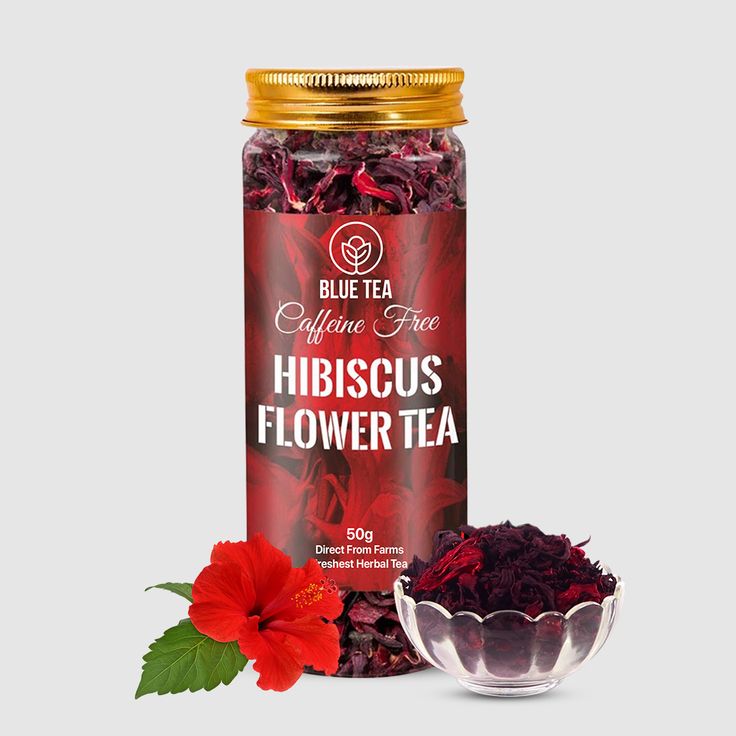
Incorporating Flower Tea into Your Daily Routine
Incorporating hibiscus tea into your daily routine can be a delightful and healthful practice. Here are some tips to seamlessly add this herbal tea to your life.
- Morning Refreshment: Instead of coffee, start your day with flower tea. Its caffeine-free nature makes it a gentle morning beverage.
- Meal Companion: Enjoy a cup of flower tea with meals. It is a great alternative to sugary drinks and can aid digestion.
- Afternoon Pick-Me-Up: Replace high-calorie snacks with flower tea for a calorie-free boost. Its flavor is a pleasant midday treat.
- Evening Relaxation: Wind down your day with a warm cup of flower tea. Its properties can help soothe and prepare you for rest.
- Hydration Boost: Carry a bottle of cold-brewed flower tea. It serves as a hydrating drink throughout the day.
Remember, you can adjust the strength of the tea to your taste. You might want a stronger brew in the morning and something lighter in the evening. Listen to your body and modify your hibiscus tea intake accordingly. And always keep in mind the potential side effects, especially if you have certain health conditions or are taking medications. Enjoy the vibrant taste and health benefits of hibiscus flower tea as a part of your daily regimen.